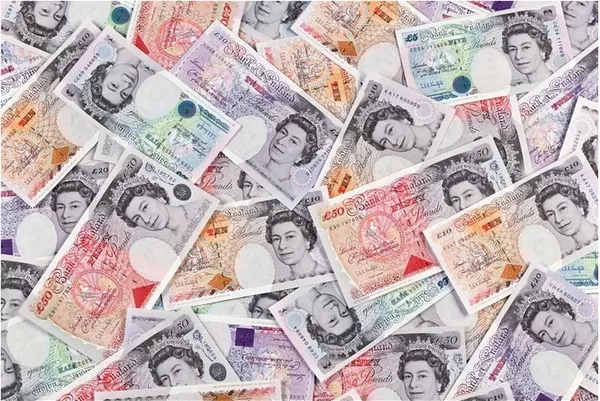The British Pound Sterling (GBP) is one of the world’s most recognized and widely traded currencies. It plays a significant role in international finance, trade, and investment. Understanding the factors that influence the GBP price is crucial for businesses, investors, and individuals alike. In this article, we will delve into the various aspects that determine the value of the GBP and its implications for the global economy.
Exchange Rates and the GBP
Exchange rates are the prices at which one currency can be exchanged for another. In the case of the GBP, its value is determined in the foreign exchange (Forex) market, where it is traded against other major currencies such as the US Dollar (USD), Euro (EUR), and Japanese Yen (JPY). The GBP’s exchange rate is a reflection of the supply and demand for the currency in these markets.
Factors Influencing GBP Price
The GBP’s price is influenced by a wide range of factors, which can be broadly categorized into fundamental and technical factors.
a. Fundamental Factors
Economic Indicators: Economic data, including GDP growth, employment figures, and inflation rates, have a significant impact on the GBP’s value. A robust economy typically results in a stronger currency, while economic uncertainty can lead to a weaker GBP.
Interest Rates: Central bank interest rates, as set by the Bank of England (BoE), play a crucial role in GBP price determination. Higher interest rates generally attract foreign capital, increasing demand for the currency and driving up its value.
Political Stability: Political events and stability can affect the GBP’s price. Political uncertainty, such as elections or referendums, can lead to currency fluctuations as investors seek safer assets in times of instability.
Trade Balance: The balance of trade, which reflects the difference between exports and imports, impacts the GBP. A trade surplus (more exports than imports) can lead to currency appreciation, while a trade deficit can result in depreciation.
Market Sentiment: Traders’ perceptions of economic and political conditions can greatly influence the GBP’s value. Positive sentiment can lead to increased demand, while negative sentiment can lead to depreciation.
b. Technical Factors
Market Liquidity: The liquidity of the GBP market affects its price. More liquid markets typically have less price volatility and narrower spreads.
Order Flow: Large buy or sell orders in the Forex market can influence the GBP’s price. A surge in demand or supply can lead to short-term price fluctuations.
Speculation: Traders and investors speculate on the future direction of the GBP price, which can result in short-term volatility. Speculative trading can be driven by various factors, including economic news releases and technical analysis.
Exchange Rate Trends: Technical analysis tools, such as moving averages and support/resistance levels, are used by traders to identify trends and make informed trading decisions.
Impact on Global Economy
The GBP is not only significant for the United Kingdom but also has a global impact. Here are a few ways in which the GBP’s price can influence the global economy:
a. Trade and Investment: The GBP’s price impacts the cost of goods and services in international trade. A stronger GBP makes British exports more expensive, potentially reducing demand for them, while a weaker GBP can boost exports. For global investors, changes in the GBP can affect the value of their investments in UK assets.
b. Foreign Exchange Reserves: Many central banks hold GBP in their foreign exchange reserves. Changes in the GBP’s price can impact the value of these reserves and, subsequently, the financial stability of those countries.
c. Tourism and Travel: The GBP’s price influences the cost of traveling to the United Kingdom. A weaker GBP can make the country a more attractive destination for tourists.
d. International Business: Companies engaged in international business, particularly those with operations in the UK, are directly impacted by GBP price fluctuations. Exchange rate risk management is essential for such businesses to mitigate currency-related uncertainties.
Managing GBP Price Risk
Given the GBP’s volatility and the potential impact on businesses and investors, it’s crucial to manage currency risk. Here are some strategies:
a. Hedging: Businesses engaged in international trade can use hedging techniques, such as forward contracts, options, and futures, to protect against adverse currency movements.
b. Diversification: Investors can reduce their exposure to GBP price risk by diversifying their portfolios across different currencies and assets.
c. Stay Informed: Staying updated on economic and political events in the UK is essential for making informed decisions in the Forex market. Economic calendars and news sources are valuable tools.
d. Consult Experts: Seeking advice from financial professionals or currency experts can help individuals and businesses make well-informed decisions regarding the GBP.
Conclusion
The GBP price is a dynamic and influential component of the global financial landscape. Its value is shaped by a complex interplay of fundamental and technical factors, making it essential for businesses, investors, and individuals to understand the forces that drive its fluctuations. Furthermore, the GBP’s impact is not confined to the United Kingdom but extends to the global economy, influencing trade, investment, and financial stability on an international scale. As such, managing GBP price risk is a crucial consideration for anyone engaged in international commerce or investment.
To navigate the intricacies of the GBP’s price, it’s essential to keep a watchful eye on economic indicators, interest rates, political developments, and market sentiment. Additionally, staying informed about strategies to manage currency risk can help mitigate the potential adverse effects of GBP price volatility.
In an ever-globalizing world, where currencies and financial markets are increasingly interconnected, understanding the GBP’s dynamics is a valuable asset for individuals and businesses alike, contributing to more informed financial decisions and risk management strategies.


